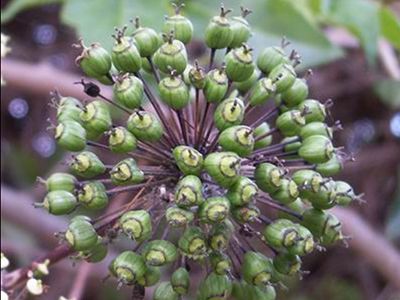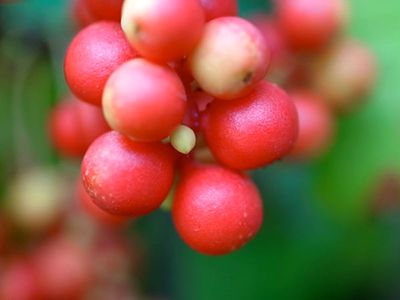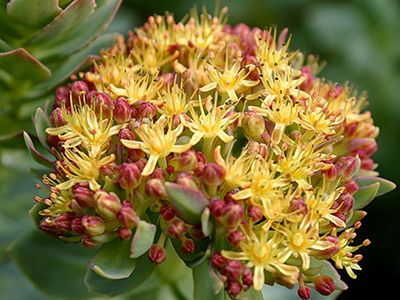Dr. Pamela's Blog
The Important Role of Adaptogens During Cold and Flu Season
As with most colds and flus, our most vulnerable populations are those who are elderly, very young, or with otherwise weakened immune systems. During cold and flu season, we tend to put our focus on the immune system and our star immune-modulating herbs, which is both smart and appropriate. However, for this blog I’m going to focus on the importance of how adaptogen herbs support our immune system and keep us strong.

We are designed to navigate acute stressors with ease. During acute stressors, like running from a proverbial saber-tooth tiger, we turn down the immune system because a microbial invader is considered a long-term problem, whereas acute stress, i.e. running from the tiger, is something that must be dealt with immediately. In conventional medicine, we capitalize on this and give corticosteroids (which are essentially stress hormones) to people who are experiencing an overabundance of immune response, such as a fulminant expression of an auto-immune condition or an acute allergic emergency. The question becomes, what happens to our immune systems when acute stress transforms into chronic stress? It has been shown in both human and multiple animal models that chronic stress makes us more susceptible to viral infections, including Epstein bar, rhinovirus and coronavirus.1
There are many things that we can do to mitigate stress: meditation, joyful movement, restful sleep, and regular, nutritious meals. Thankfully, we also have some potent helpers in the plant kingdom that support our body’s recovery from stress—namely adaptogens. Studies from Russia involving thousands of people show as much as 50% reduction in respiratory illnesses by daily use of a single adaptogen—eleuthero.2 Interestingly, adaptogens are more vital to creating a healthy immune response than immune-enhancing herbs—especially in times of stress.3 However, herbs work better together synergistically, and it is always beneficial to combine adaptogens with immune specific herbs.

The tricky thing about viral infections is that viruses can’t live or reproduce without a host cell. Unlike bacteria, which are a complete organism, viruses need our cells to thrive and replicate, so they literally invade our cells and take over. Our immune system has a specialized branch, called T Cells (specifically Natural Killer or NK cells and CD8 Cytotoxic T cells), to detect and destroy virally infected cells. Here again we see adaptogens shine. Many clinical trials in Russia show the efficacy of Schisandra chinensis in epidemic waves of influenza4 and demonstrate how adaptogens specifically enhance macrophages, NK cells, and cytotoxic T cells.5 Mouse models have confirmed that the polysaccharides in Schisandra increase both T cells and overall immunity.6
Of course, we want a robust immune response to any pathogenic invader; however, as with many things in life, too much of a good thing can be problematic. We need a way to curb our immune response, and one of the important players in this is the T regulatory (Treg) cells. Along with a healthy gut microbiome, adaptogens bolster our T regulatory cells7 to help modulate our immune response and prevent over-inflammation.
What we are seeing in this current pandemic is an upregulation of the inflammasome NLRP3 and subsequent increases in inflammatory cytokines especially Il-1ß and Il-18. This leads to the cytokine storm that is so very damaging to our lungs and causes some of the most distressing symptoms of this particular virus. The main purpose of the inflammasome is to detect viral proteins, so it is important to note that it is the virus itself that causes this cytokine storm. While there hasn’t been time to study the effects of herbs on the current coronavirus specifically, there have been studies on the effects of adaptogens on the NLRP3 inflammasome. Rhodiola has been shown to have a calming or dampening effect on NLRP3 with subsequent decrease of Il-1 ß levels.8
The immune system uses reactive oxygen species (ROS), hydrogen peroxide, and other inflammatory substances to kill bacteria, viruses, and virally infected cells. Adaptogens contain a diverse array of carotenoids, flavonoids, and phytosterols, which offer direct protection to our own cells from the oxidative stress produced by the immune system. Both ginseng and Mucuna pruriens, a traditional adaptogenic herb from India, have shown their mettle in mitigating ROS.9,10

The last place that adaptogens really shine is in the recovery stage of a viral or bacterial illness. The immune system requires tremendous amounts of energy to fight off infection, and adaptogens improve cellular energy production.11 A 2005 double-blind, placebo-controlled, randomized study in Armenia showed that an adaptogen formula consisting of extracts from Rhodiola, Schisandra, and Eleutherococcus, significantly improved recovery in adults suffering from acute nonspecific pneumonia. Participants with twice daily administration of the adaptogen formula had decreased duration of the acute phase of the illness. They also scored significantly higher in quality of life factors (physical, psychological, and social) on the fifth day after clinical convalescence than control groups who did not receive the adaptogen formula. Both groups received the same antibiotic treatment.12
Traditionally, we use adaptogens when we are over-tired or exhausted, because we know how well they fill energy buckets. We often think of them for fatigue, mental fogginess, low libido, etc. What better time to call upon their reinforcing powers than when we are confronted with a microbial invader? Adaptogens give us strength – strength to resist infection, strength to fight microbes, strength to mitigate our immune response, and strength to recover.
References
- Glaser R, Rabin B, Chesney M, Cohen S, Natelson B. Stress-induced immunomodulation: implications for infectious diseases? JAMA. 1999;281(24):2268–2270. doi:10.1001/jama.281.24.2268
- Gagarinova VM, Ostrovskaia SA, Astaf'ev OM, et al. The use of adaptogens of plant origin in protecting children against influenza and other acute respiratory diseases. Pediatriia. 1990;(9):108.
- Yance, Donald. Adaptogens in Medical Herbalism: Elite Herbs and Natural Compounds for Mastering Stress, Aging, and Chronic Disease. Tornoto, Canada, Healing Arts Press, 2013.
- Panossian A, Wikman G. Pharmacology of Schisandra chinensis Bail.: an overview of Russian research and uses in medicine. J Ethnopharmacol. 2008;118(2):183–212. doi:10.1016/j.jep.2008.04.020
- Bocharova OA. Adaptogeny kak sredstva profilakticheskoĭ onkologii [Adaptogens as agents for prophylactic oncology]. Vestn Ross Akad Med Nauk. 1999;(5):49–53.
- Yu J, Cong L, Wang C, et al. Immunomodulatory effect of Schisandra polysaccharides in cyclophosphamide-induced immunocompromised mice. Exp Ther Med. 2018;15(6):4755–4762. doi:10.3892/etm.2018.6073
- Chen Z, Guo M, Song G, et al. Schisandrin B inhibits Th1/Th17 differentiation and promotes regulatory T cell expansion in mouse lymphocytes. Int Immunopharmacol. 2016;35:257–264. doi:10.1016/j.intimp.2016.03.037
- Tao Zheng, Xiaoyan Yang, Wenjin Li, Qibin Wang, Li Chen, Dan Wu, Fang Bian,1Shasha Xing, and Si Jin. Salidroside Attenuates High-Fat Diet-Induced Nonalcoholic Fatty Liver Disease via AMPK-Dependent TXNIP/NLRP3 Pathway. Open Access Research Article Volume 2018:Article ID 8597897
- Fernández-Moriano C, González-Burgos E, Iglesias I, Lozano R, Gómez-Serranillos MP. Evaluation of the adaptogenic potential exerted by ginsenosides Rb1 and Rg1 against oxidative stress-mediated neurotoxicity in an in vitro neuronal model. PLoS One. 2017;12(8):e0182933. Published 2017 Aug 16. doi:10.1371/journal.pone.0182933
- Singh AP, Sarkar S, Tripathi M, Rajender S. Mucuna pruriens and its major constituent L-DOPA recover spermatogenic loss by combating ROS, loss of mitochondrial membrane potential and apoptosis. PLoS One. 2013;8(1):e54655. doi:10.1371/journal.pone.0054655
- Yance, Donald. Adaptogens in Medical Herbalism: Elite Herbs and Natural Compounds for Mastering Stress, Aging, and Chronic Disease. Tornoto, Canada, Healing Arts Press, 2013 pg 166.
- Narimanian M, Badalyan M, Panosyan V, Gabrielyan E, Panossian A, Wikman G, Wagner H. Impact of Chisan (ADAPT-232) on the quality-of-life and its efficacy as an adjuvant in the treatment of acute non-specific pneumonia. Phytomedicine. 2005 Nov;12(10):723-9, Department of Family Medicine, Yerevan State Medical University, Yerevan, Armenia.


